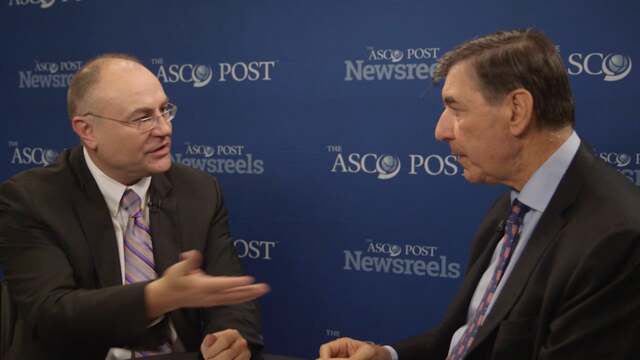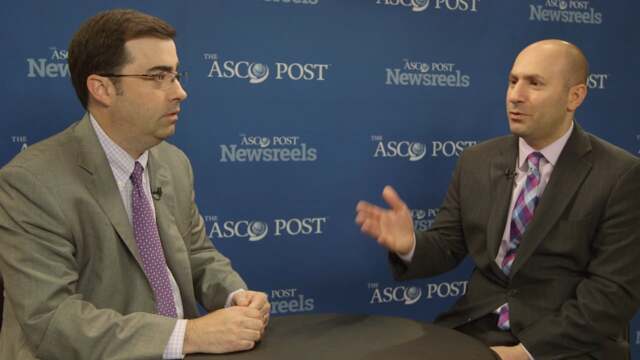Michele Cavo, MD, on Multiple Myeloma: Results From a European Myeloma Network Trial (Italian Language Version) 
2016 ASCO Annual Meeting
Michele Cavo, MD, of the Seràgnoli Institute of Hematology, Bologna University School of Medicine, discusses in Italian results from this phase III study of upfront autologous stem cell transplantation vs novel agent-based therapy for multiple myeloma (Abstract 8000).

To see the English language version of this video, please
click here.
Sagar Lonial, MD, of Emory University School of Medicine, and Paul G. Richardson, MD, of the Dana-Farber Cancer Institute, discuss the top presentations on multiple myeloma delivered at this year’s meeting.
Heinz-Josef Lenz, MD, of the University of Southern California, and Marc Ychou, MD, of the Centre Régional de Lutte Contre Le Cancer, discuss study findings on FOLFIRINOX combined with targeted therapy according to RAS status for colorectal cancer patients with initially nonresectable liver metastases (Abstract 3512).
David F. McDermott, MD, of Beth Israel Deaconess Medical Center, and Toni K. Choueiri, MD, of the Dana-Farber Cancer Institute, discuss an update on data from phase I and II studies of nivolumab given to patients with metastatic renal cell carcinoma, including long-term overall survival and potential predictors of benefit (Abstract 4507).
Celestia S. Higano, MD, of the University of Washington, and Chris Parker, MD, of the Royal Marsden Hospital, discuss findings from this confirmatory study evaluating the accuracy of MRI and TRUS biopsy in men with an elevated PSA (Abstract 5000).
Fabrice Denis, MD, PhD, of the Institut Inter-regional de Cancérologie Jean Bernard, discusses findings from a phase III trial on an app used between visits for early detection of symptomatic relapse and complications in high-risk lung cancer patients (Abstract LBA9006).
 To see the English language version of this discussion, click here.
To see the English language version of this discussion, click here.






